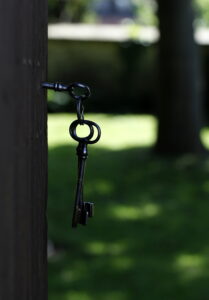I always ask the congregations with whom I work, “What is the purpose of your endowment?”, and “How have you laid out its uses, and what triggers those disbursements?” It is important to make sure the policies that control the use of your endowment are clear, functional and well documented. For congregations with an endowment of usable size, a good policy can help eliminate tension and conflict over disbursements.

So, here we are today in a global pandemic and economic crisis. Many of our congregations have made a brilliant pivot to create ministries online, with wonderful support from the Unitarian Universalist Association. This has not happened without a lot of stress and long hours of work, particularly for our clergy and staff members. Yet many UU congregations are succeeding in ways that numerous nonprofits, corporations, and other houses of worship have not been able. We should be proud about that; it says something good about who we are and how dedicated we are to Unitarian Universalist missions.
We are also, in some congregations, in great need of funds from outside of our normal sources of income. This need may increase and become critical, as the Covid-19 Pandemic continues to impact our congregant’s economic lives and the international economy. Our endowments or invested funds would seem to be perfectly positioned to ensure support for these emergency adaptation efforts and for sustaining our ministries and staff during this extreme situation. Are they?
What Kind of Endowment?
Starting with basic definitions:
- Endowment: money set aside for long-term uses
- True Endowment: permanently set aside
- Quasi-Endowment: restricted by board resolution that can be changed, so may not prove to be permanent
[definitions from: Financial Accounting Standards Board (FASB)]
Whether you have a true or a quasi-endowment can be rooted in a number of different documents:
- The enabling resolution or origination document for the endowment fund. Often voted on by the congregation.
- The Bylaws
- Board policy (whether the endowment is under congregational board fiduciary or is a separate nonprofit with its own board)
- A restriction made by the donor and affirmed by the Board of Trustees
It is notable that many congregations have quasi-endowments, yet most of their members believe that the congregation has a true endowment. This is a cultural challenge that may be at the root of why Boards do not make the purpose, use, or disbursement triggers of their endowments more explicit. This can be seen where “donor intent” is upheld and defended within the congregation, yet there is no written and explicit documentation of that intent.
So, the first step in determining how useful your endowment is in these times is what type of endowment you have, and whether rules regarding its use is well documented in official records of the congregation.
Changing the Rules
If you find that your documentation (resolution, bylaws, policies) does not allow you to use endowment or invested funds, yet the congregation is at financial risk if you do not, what can you do?
First of all, if documented donor intent is perceived to be broken, it might open up the congregation to legal action, and it may be better to look for other options. It is possible through the legal system to amend a documented donor restriction, yet that is only warranted in unusual cases and where the fund size warrants.
If it is a matter of resolution or bylaws change (quasi-endowment), then the rules to permanently change or temporarily suspend them must be followed. These rules are usually in the bylaws. If a congregational vote is required, and electronic voting is not well covered in policies and procedures, visit the Unitarian Universalist Association site for support on how to achieve this. Here is a good resource: https://www.uua.org/leadership/library/voting-online
Board policies can usually just be changed by a vote of the board itself. However, this can create the perception that congregational polity is being neglected or that the board is acting without congregational input.
Changing the Culture
Even if all of your congregational key documents have the flexibility to use the endowment funds in financial emergencies, some congregants may still believe that the endowment should never be touched; that it is permanent. If this is the case, then using those funds before creating new understandings and agreements risks creating conflict, sometimes with the longest standing and most dedicated of your congregants.
What is needed then is education, so that everyone has a better understanding of what the key documents say and how they dictate things should work. Once that is established, communication is key in laying out the specific and immediate circumstances, changes that are suggested, and how it is proposed for those changes to come about. Of vital importance are the specific parameters of those changes. For some people, a perceived structural change to the endowment signals that all controls are off and anything could happen – like the endowment being spent down to nothing, on things that are not vital. It will be important to let people know that there will be limits in place, so it cannot become a free-for-all or a free-fall.
Endowments and other invested funds are important financial tools of the congregation. If they are rendered unusable, either by documentation or by congregational culture, then the organization is missing key instruments that are vital to financial functioning even in normal times. If your congregation does not have an endowment, or one that has grown enough to be useful (by your own congregation’s definition), this may inspire you to build a more meaningful planned giving program.
These are times of urgent need, potentially for the finances of our congregations and certainly in the lives of our congregants and our broader communities, where anxiety and suffering may be intense. If we can use our endowments wisely, then we can keep our programs and ministries going, and reaching out into the community, just when they are needed most. Let’s all work together to be wise fiduciaries and make this possible.
Open Forum on Friday
We will be having an Open Forum video gathering on Friday at 1 PM Eastern. The topic this week will be Endowments and Other Funds, so be prepared to ask and share intelligence with us. The Zoom link will go out directly to our email list, so watch your email box or sign up in the blue box to your right to get the notice.
Liz Coit, Kay Crider, Mark Ewert, Barry Finkelstein and Rachel Maxwell are part of the Stewardship For Us team. Please send your questions and topic suggestions for our blog or online Friday Forum discussions to team@stewardshipforus.com

Mark Ewert is a stewardship consultant, a Chartered Advisor in Philanthropy® (CAP®), and a professional leadership and philanthropy coach (PCC) certified with the International Coaching Federation.
His experience includes founding a nonprofit, working as a fundraiser, and leading a national organization. Reach Mark at Team@StewardshipForUs.com
